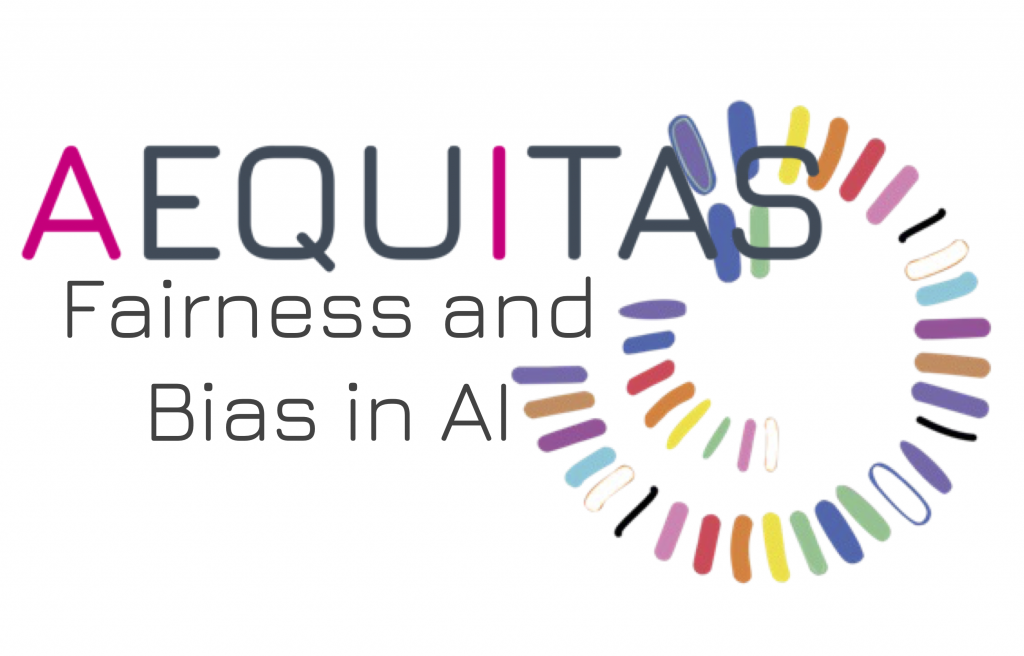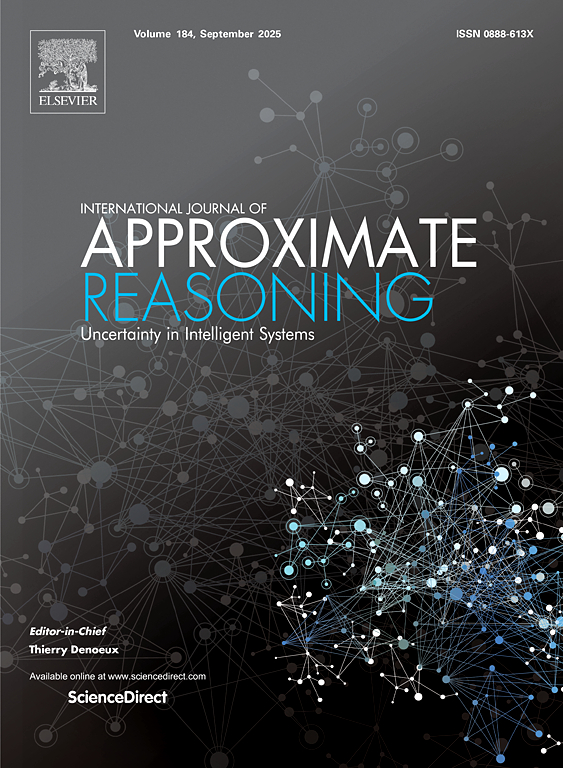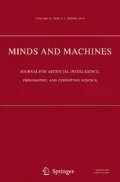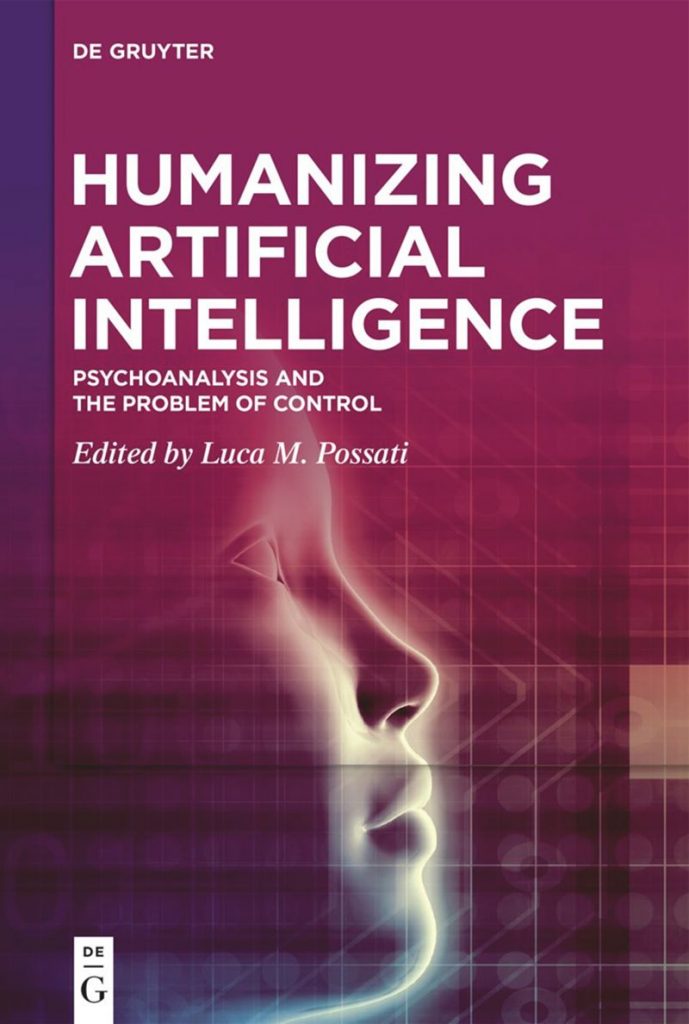Publications
2026

Andrea Borghini and Simone Severini, Science LTD. Research Enterprise in the Age of Machines. CRC Press, 2026.

Giorgio Ubbiali, Matthew Lange, and Andrea Borghini, ‘Ontologies for Sustainability: Theoretical Challenges’, Sustainable Development, forthcoming.

E. Alonso, E. Bonadio, Andrea Borghini, and J. Camarena Lopez, ‘The Algorithmic Kitchen: Generative AI, Chefs and Copyright.’ In: Story, D., Foxen, A., Jenkins, R. (eds) AI Kitchens and Robot Cooks: Ethics and Society at the Frontier of Food Automation. Routledge, 2026.
2025

Manganini, C. & Primiero, G. (2025), Defining Formal Validity Criteria for Machine Learning Models In: Durán, J.M., Pozzi, G. (eds) Philosophy of Science for Machine Learning. Synthese Library, vol 527. Springer, Cham. https://doi.org/10.1007/978-3-032-03083-2_14

Manganini, C., Corsi, E. A. & Primiero, G. (2025), Data speak but sometimes lie: A game-theoretic approach to data bias and algorithmic fairness. International Journal of Approximate Reasoning, https://doi.org/10.1016/j.ijar.2025.109608

Buda, A. G.& Primiero, G. (2025), A logic for Using Information, Logique et Analyse, vol. 265, Peeters Publishers 2025.

Andrea Borghini e Nicola Piras, ‘Semantic and Philosophical Approaches for Advancing the Identification and Measurement of Food Waste’, Nature Food, May 8 2025, https://dx.doi.org/10.1038/s43016-025-01167-2

Primiero, G. (2025). Justice at the Core of a New AI Paradigm. Harvard Data Science Review, 7(4).

Doneda, F., Genco F. A. & Primiero, G. (2025). A logic for reasoning about (negative) trust under uncertainty Journal of Applied Non-Classical Logics, 1–59.

Buda, A. G., Manganini, C. & Primiero, G. (2025). A Philosophical Framework for Data-Driven Miscomputations, Philosophies 2025, 10(4), 88

Ceragioli, L., & Primiero, G. (2025). A Proof System with Causal Labels (Part II): checking Counterfactual Fairness, Proceedings of the 7th International Workshop on Artificial Intelligence and Formal Verification, Logic, Automata, and Synthesis, Bologna, Italy, October 26, 2025

Ceragioli, L., & Primiero, G. (2025). A Proof System with Causal Labels (Part I): checking Individual Fairness and Intersectionality, Proceedings of the 7th International Workshop on Artificial Intelligence and Formal Verification, Logic, Automata, and Synthesis, Bologna, Italy, October 26, 2025

Ceragioli, L., & Primiero, G. (2025). Trustworthiness Preservation by Copies of Machine Learning Systems. arXiv

G. Spolaore, S. Iaquinto, and G. Torrengo (2025), “Taste Fragmentalism”, Erkenntnis, 90: 1343-1361 https://doi.org/10.1007/s10670-023-00754-8

Innocenti, M. (2025c). Biomimicry and AI-Enabled Automation in Agriculture. Conceptual Engineering for Responsible Innovation. Journal of Agricultural and Environmental Ethics, 38(1), 2. https://doi.org/10.1007/s10806-024-09939-9

Innocenti, M. (2025b). Moral Hermeneutics in R&D Teams: Making Sense of Conflicting Responsibilities in Technological Innovation. Philosophy & Technology, 38(1), 23. https://doi.org/10.1007/s13347-025-00848-x

Innocenti, M. (2025a). Reflexivity and AI Start-ups: A Collective Virtue for Dynamic Teams. Journal of Responsible Technology, 22, 100115. https://doi.org/10.1016/j.jrt.2025.100115

Termine, A., & Primiero, G. (2025). Causality Problems in Machine Learning Systems. In The Routledge Handbook of Causality and Causal Methods (pp. 325–341). Routledge. https://doi.org/10.4324/9781003528937-37

Manganini, C., & Primiero, G. (2025). Reasoning With and About Bias. In Perspectives on Logics for Data-driven Reasoning (Vol. 35, pp. 127–154). Springer Cham. https://doi.org/10.1007/978-3-031-77892-6_7

D’Asaro, F. A., Genco, F. A., & Primiero, G. (2025). Checking trustworthiness of probabilistic computations in a typed natural deduction system. JOURNAL OF LOGIC AND COMPUTATION. https://doi.org/10.1093/logcom/exaf003

Bianchi, C., Caponetto, L. (2025), Filosofia sociale del linguaggio, Roma-Bari, Laterza, ISBN: 978-88-593-0081-6.
2024

Andrea Borghini e Simone Severini, Scienza SpA: Appunti su ricerca e innovazione, Mondadori, 2024, ISBN: 9788861848023

G. Torrengo and D. Cassaghi (2024), “Flow and presentness in experience”, Analytic Philosophy, 65, 2: 109-130 (https://onlinelibrary.wiley.com/doi/10.1111/phib.12264)

C. Mariani, R. Michels, and G. Torrengo (2024), “Plural Metaphysical Supervaluationism”, Inquiry, 67(6), 2005–2042 (https://doi.org/10.1080/0020174X.2021.1982404)

G. Torrengo (2024), “The closed future”, Theoria (online first: https://doi.org/10.1111/theo.12561)

G. Torrengo (2024), Temporal Experience. The Atomist Dynamic Model, Oxford University Press (https://global.oup.com/academic/product/temporal-experience-9780192845580?cc=it&lang=en&)

Avis, M., Marciniak D. , Sapignoli M. 2024 (eds) Situated AI: Global Ethnographies of New Technologies in Policing and Justice. New York: Routledge.

Innocenti, M. (2024), “Ethical Responsibility in Agricultural Innovations: The Role of Technological Imaginaries”, in Giersberg, M., Meijboom, F., & Bovenkerk, B. (eds.), EURSAFE 2024 Proceedings – Back to The Future, Brill, pp. 130-134 (https://doi.org/10.1163/9789004715509_021).

R. Redaelli, Intentionality gap and preter-intentionality in generative artificial intelligence, in: AI & Society: Knowledge, Culture and Communication, (2024). https://doi.org/10.1007/s00146-024-02007-w

R. Redaelli, Dall’intenzionalità alla preterintenzionalità. Una riflessione sui sistemi intelligenti, in: Mechane. Rivista di filosofia e antropologia della tecnica, 7 (2024), pp. 89-108.

Redaelli, R. (2024), “Il profilo normativo dell’intelligenza artificiale. Un’indagine sulla relazione tra sistemi intelligenti e normatività morale”, Scienza & Filosofia, 32: 322-344 (https://www.scienzaefilosofia.com/wp-content/uploads/2025/01/16.-Redaelli.pdf).

Quaresmini, C., Primiero, G. (2024). “Data Quality Dimensions for Fair AI”, AEQUITAS 2024 : Fairness and Bias in AI, Vol. 3808, pp. 1-16, CEUR (https://ceur-ws.org/Vol-3808/paper12.pdf).

Primiero, G. (2024). Handling Mobility Failures by Modal Types. In The Architecture and Archaeology of Modern Logic (Vol. 61, pp. 203–232). Springer Nature. https://doi.org/10.1007/978-3-031-52411-0_11

Coraglia, G., D’Asaro, F. A., Dyoub, A., Lisi, F. A., Primiero, G. (2024), Proceedings of the 3rd Workshop on Bias, Ethical AI, Explainability and The Role of Logic and Logic Programming, co-located with the 23rd International Conference of the Italian Association for Artificial Intelligence (AIxIA 2024), CEUR-Ws, (https://ceur-ws.org/Vol-3881/).

Petrolo, M., Kubyshkina, E., Primiero, G. (2024), “Prior to Trust: Frequentist and Bayesian views of Trust in AI”, BEWARE 2024 : Bias, Risk, Explainability, Ethical AI and The Role of Logic and Logic Programming, Vol. 3881, pp. 1-5, CEUR-Ws (https://ceur-ws.org/Vol-3881/paper1.pdf).

Buda, A.G., Coraglia, G., Genco, F.A., Manganini, C., Primiero, G. (2024), “Bias Amplification Chains in ML-based Systems with an Application to Credit Scoring”, BEWARE 2024 : Bias, Risk, Explainability, Ethical AI and The Role of Logic and Logic Programming, Vol. 2881, pp. 77-86, CEUR Ws (https://ceur-ws.org/Vol-3881/paper9.pdf).

Paganini, E. (2024), “Self-Transforming Powers”, Metaphysics, 7(1): 99–115 (https://doi.org/10.5334/met.143).

Paganini, E. (2024), “Was There Time Before the Big Bang? Philosophical Enquiries”, Journal of Physics. Conference Series, 2877: 012058 (https://iopscience.iop.org/article/10.1088/1742-6596/2877/1/012058/pdf).

Paganini, E. (2024), Aesthetic Value of Immoral Fictions, Croatian Journal of Philosophy, 24 70): 53-63 (https://doi.org/10.52685/cjp.24.70.4).

Caponetto, L., Piazza, T. (2024), Il reale e l’ideale: nuove tendenze della filosofia analitica contemporanea, Numero speciale di Rivista di Filosofia, 2/2024

Caponetto, L. (2024), ‘Actually, Scratch That’: A Tour Into the Illocutionary Fabric of Retraction, in D. Zeman & M. Hîncu, Retraction Matters: New Developments in the Philosophy of Language, Cham: Springer, pp. 119-138.

Caponetto, L., Piazza, T. (2024), Introduzione: Il reale e l’ideale, Rivista di filosofia, 2/2024: 211-222.

Caponetto, L., Piazza, T. (2024), “Ingiustizia epistemica”, Rivista di filosofia, 2/2024: 257-280 (https://rivisteweb.it/doi/10.1413/114467).

Caponetto, L., Marsili, N. (2024), Counterevidentials, Australasian Journal of Philosophy, https://doi.org/10.1080/00048402.2024.2390175

Kubyshkina, E., Primiero, G. (2024), A Possible Worlds Semantics for Trustworthy Non-deterministic Computations, International Journal of Approximate Reasoning (https://doi.org/10.1016/j.ijar.2024.109212).

Coniglio, M.E., Kubyshkina, E., Zaitsev, D. (2024) (eds.), Many-Valued Semantics and Modal Logics: Essays in honour of Yuriy Vasilievich Ivlev, Springer (https://link.springer.com/book/10.1007/978-3-031-56595-3).

Kubyshkina, E. (2024) (tr.), “Quasi-matrix Logics”, translation from Russian into English of Quasimatrix (quasifunctional) logic by Yu. V. Ivlev (2018), in M.E. Coniglio, E. Kubyshkina & D. Zaitsev (eds.), Many-Valued Semantics and Modal Logics: Essays in honour of Yuriy Vasilievich Ivlev, pp. 3-51. Springer, (https://link.springer.com/book/10.1007/978-3-031-56595-3).

Kubyshkina, E., Petrolo, M. (2024), “Ignorance and Its Formal Limits”, in F. Bianchini, V. Fano, & P. Graziani (eds.), Current Topics in Logic and the Philosophy of Science: Papers from SILFS 2022 Postgraduate Conference, pp. 131-142. College Publications (https://www.collegepublications.co.uk/silfs/?00030).

Grespi, B. (2024), “Gesto. Espressione, linguaggio e tecnica”, in F. Cimatti e A. Maiello (a cura di), Quasi viventi. Il mondo digitale dalla A alla Z, Codice Edizioni, pp. 95-104 (https://www.codiceedizioni.it/libri/quasi-viventi/).
2023

Buda, A.G., Primiero, G. A Pragmatic Theory of Computational Artefacts. Minds & Machines (2023). https://doi.org/10.1007/s11023-023-09650-0

Redaelli R. (Ed.) (2023). Moral Normativity in an Interdisciplinary Perspective. Humans, Animals & Artificial Intelligence. Verlag Karl Alber, Baden-Baden;

Redaelli, R. (2023d). Artificial intelligence and Quasi-Normativity: Some Indications for a Solution to the Normative Question in the Field of AI Ethics. In Redaelli, R. (Ed), Moral Normativity in an Interdisciplinary Perspective. Humans, Animals & Artificial Intelligence (105-122). Verlag Karl Alber, Baden-Baden; https://doi.org/10.5771/9783495994290-105

Redaelli, R. (2023c). From Tool to Mediator. A Postphenomenological Approach to Artificial Intelligence. In Possati, L.M. (Ed), Humanizing Artificial Intelligence. Psychoanalysis and the Problem of Control (95–110). De Gruyter, Berlin/Boston; https://doi.org/10.1515/9783111007564-006

Redaelli, R. (2023a). Different approaches to the moral status of AI: a comparative analysis of paradigmatic trends in Science and Technology Studies. Discover Artificial Intelligence (Springer),3, https://doi.org/10.1007/s44163-023-00076-2

Primiero, G. On the Foundations of Computing: Limits and Open Issues. glob. Philosophy 33, 37 (2023). https://link.springer.com/article/10.1007/s10516-023-09688-w

Boella, G., D’Asaro, F. A., Dyoub, A., Gorrieri, L., Lisi, F. A., Manganini, C., & Primiero, G. (eds.) (2023), BEWARE 2023 : Bias, Ethical AI, Explainability and the role of Logic and Logic Programming, Vol. 3615, CEUR-Ws (https://ceur-ws.org/Vol-3615/).

Coraglia, G., D’Asaro, F. A., Genco, F.A., Giannuzzi, D., Posillipo, D., Primiero, G., Quaggio, C. (2023), “BRIOxAlkemy: A Bias Detecting Tool”, BEWARE 2023 : Bias, Ethical AI, Explainability and the role of Logic and Logic Programming, Vol. 3615, pp. 44–60, CEUR Ws (https://ceur-ws.org/Vol-3615/paper4.pdf).

Petrolo, M., Kubyshkina, E., Primiero, G. (2023), A Logical Approach to Algorithmic Opacity, BEWARE-23: Bias, Ethical AI, Explainability and the role of Logic and Logic Programming, Vol. 3615, pp.89-95, CEUR-Ws (https://ceur-ws.org/Vol-3615/short4.pdf).
